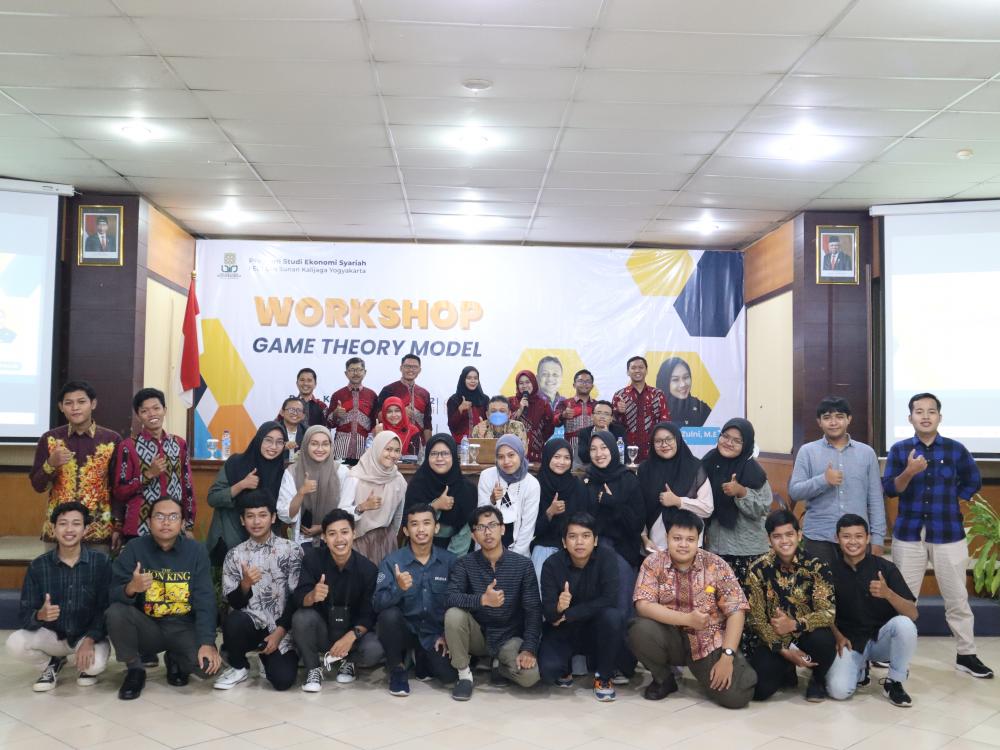Workshop on Game Theory to Enhance the Competence of Lecturers and Students of Islamic Economics Study Program

Yogyakarta (17/6) - The Islamic Economics Study Program, FEBI, UIN Sunan Kalijaga Yogyakarta (UIN SUKA) held a Game Theory Model Workshop on June 15-16, 2022. The event, held at the University Hotel, was attended by the Vice Dean III of FEBI, the Head of the Study Program, the Secretary of the Study Program, as well as lecturers and students of the Islamic Economics Study Program.
Dr. Abdul Qoyum, S.E.I. M.Sc.Fin., the Head of the Islamic Economics Study Program, opened the event, followed by a speech from Dr. Ahmad Salehudin, S.Th.I., M.A., the Vice Dean III of FEBI. A pretest was then conducted to gauge the participants' understanding prior to the training. The material was presented by Mr. Rimawan Pradiptyo, S.E., M.Sc., Ph.D., the Head of Economics Department at the Faculty of Economics and Business, Gadjah Mada University.
Mr. Rimawan, as the speaker, conveyed that there are two types of decision-making methods, namely decision theory and game theory. In game theory, decision-making takes into account the opponent's response, while decision theory focuses solely on optimizing individual decisions, assuming the opponent's fixed attitude. In general, the training session covered a range of topics, including an Introduction to Game Theory, 2x2 Games and One-Shot Games, Determination of Dominant Strategies, Finitely Repeated Games and Automata, Infinitely Repeated Games, Extensive Form Games and the Chain Store Paradox, Games with Asymmetric Information (Production Games), and Games with Asymmetric Information, with examples of Public Sector Pay Systems in Indonesia.
The event concluded with a post-test, and three winners were awarded. Ahmad Ashnov, a student of the Islamic Economics Study Program, Class of 2019, was awarded for being the most active participant. Naila Muhimmatul Ifadah, also a student of the Islamic Economics Study Program, Class of 2019, received an award for achieving the highest post-test score. Lastly, M. Nabil Falih, a student of the Islamic Economics Study Program, Class of 2020, was awarded as the most progressive participant.
Nabil, the recipient of the most progressive participant award, expressed his enthusiasm for the workshop, stating that he found it remarkably intriguing. " This material is rarely discussed, despite being fundamental and widely implemented in our lives. By studying Game Theory, we understand that economic mathematics, rich in complexity, differs significantly from ordinary mathematics," he said.
(Aris Munandar)
